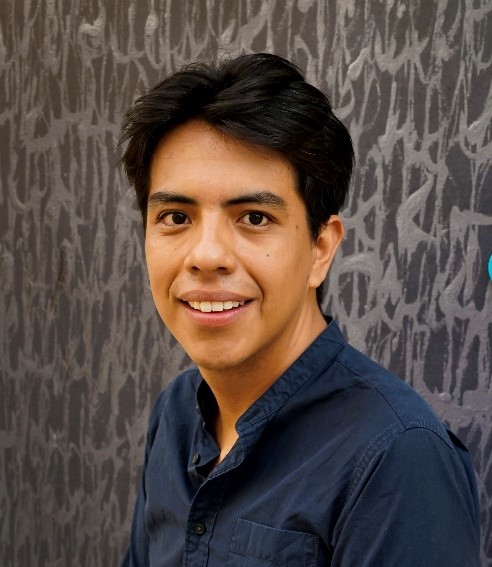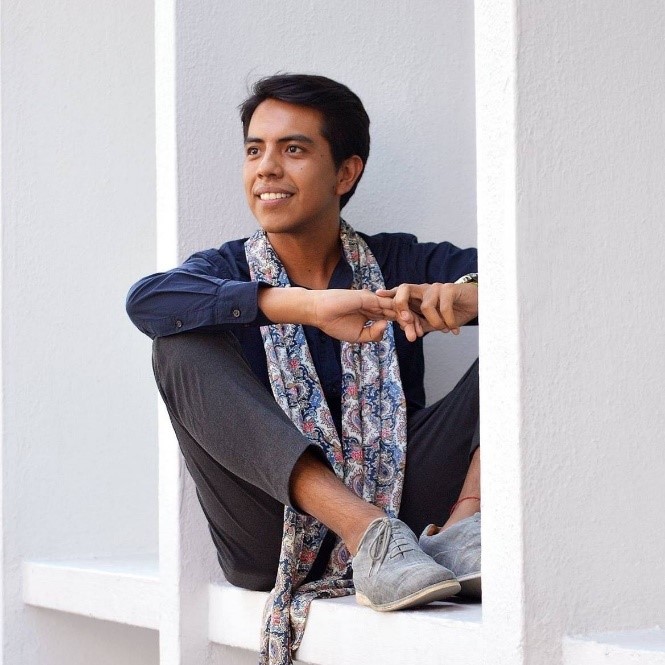
As Digital Communications Team Lead at the Partnership for Maternal, Newborn & Child Health, hosted by the World Health Organization, Mijail Santos is an advocate and an innovator. He helps stakeholders leverage the power of networks through technology, to bring about changes in policy, financing, and services for women, children and adolescents.
“It’s difficult for sure to leave your country to start a new life,” says Mijail Santos Luján (MPP 2018). “You need to have courage to do this, and it’s definitely an adventure.”
Hailing from Mexico, Mijail’s first long-term overseas experience was during a university exchange year in France. He has since had a taste of life in Singapore, and he is currently based in Geneva, Switzerland, working for the Partnership for Maternal, Newborn & Child Health, or PMNCH for short, hosted by the World Health Organization.
As PMNCH’s Digital Communications Team Lead, he concedes that he is “biased towards technology.” At the same time, he remains cognisant that his greatest responsibility is not only to champion innovation, but also to ensure access to information and services. Below, he tells us about his work, his values, and his LKYSPP (Lee Kuan Yew School of Public Policy) experience.

At PMNCH, we focus on three areas of work: maternal, newborn and child health; sexual and reproductive health and rights; and adolescents’ health and well-being. Our core function is advocacy, through which we mobilise and resource our partners to seek changes in policy, financing, and services for women, children and adolescents, while holding each other accountable.
Mijail Santos Luján
MPP 2018
Digital Communications Team Lead, The Partnership for Maternal, Newborn & Child Health, World Health Organisation
International Affairs
COVID-19 has made it clear that there are inequalities that need to be addressed to “build forward fairer.” We know that women, children and adolescents have been hard hit by the pandemic, and we’re expecting, for example, millions of unwanted pregnancies in the aftermath of the pandemic because of reduced access to sexual and reproductive health facilities.
With over a thousand member organisations, a key challenge is having them leverage the power of networks through technology. As PMNCH’s Digital Communications Team Lead, I have the task of designing innovative approaches to help our partners to better connect, communicate, and engage.
Right now, I'm working on our new digital platform, and what we've seen is that our partner organisations would benefit from having a way to communicate with each other at the global, regional, and local levels. With our new platform, our partners can not only access information and get to know each other through a sophisticated database, but also reach out to each other for collaborations.
We also plan to create communities of practice, where partner governments, NGOs, the private sector, academic or research institutes, and all of our constituencies can come together to exchange knowledge. We hope our platform will provide spaces for engagement to happen, for documents to be easily accessible, and for news to be shared among members within these communities.
I believe that the digital divide has to be fought with accessible technology. If not, we’re failing to see the reality that digitalisation is inevitable, and we’re, in a way, perpetuating the gap.
My work is not about reinventing the wheel—it’s about adapting the wheel so that we can be more efficient, and all our partners can access our platform, even if they don’t have the latest technologies or high Internet bandwidth. I also want to change the perception that organisations should refrain from adopting technology to avoid excluding those without access. I believe that the digital divide has to be fought with accessible technology. If not, we’re failing to see the reality that digitalisation is inevitable, and we’re, in a way, perpetuating the gap.
Besides technology, bringing a global message or global advocacy efforts to a local environment—what I call “glocalisation”—is challenging in terms of communication. Part of our digital work involves translating information into different languages, but that’s only the first hurdle. We also have to think about context, because if someone doesn’t understand the examples or images that you’re using, they won’t relate to your content. It’s a fascinating challenge, but a challenge nonetheless.
Growing up in Mexico
I'm from Mexico, where the economic gap is very clear. My parents encouraged me to not live in a bubble, but to go outside and see the reality of the world—you have to understand the problems that people face, in order to do something about it. They were always pushing me to be better, to share things, and to work for the good of society.
During my teens, I volunteered for an organisation that works with children and adolescents, and that was the first time I was exposed to an international community. I remember one conversation where we had youths of 20 different nationalities discussing issues like abortion and mental health, and I discovered that others had views that were completely different from mine. What I realised was that our views impact not only the way that we think, but also the way that we act around our health.
In Mexico, a lot of people don't have access to both information and services, and decisions are made based on guesses rather than scientific knowledge. It's not that the information is not there, it's just that the information is not consumable. We can’t expect that 60 or 70 percent of the population is educated enough to read a scientific paper. If people can’t access information—for example, through a video—to learn about the benefits or risks of their health decisions, it’s detrimental, especially to vulnerable communities.
Leaving Home to Learn
I did my undergraduate studies in political science in Mexico, with an exchange semester in France. I wanted to be better prepared for policy making, and at the same time, learn about different approaches to politics. That’s why I applied to the LKYSPP. When I received my acceptance, I was excited and nervous, as I didn’t know a single person in Singapore. But everything happened quickly—I had to quit my job and leave my apartment within a month—so I had to focus on getting things done.
When I arrived in Singapore, the first shocker for me was not being able to drink water on the subway! For me, it’s a natural thing and I didn't even think that could be forbidden anywhere in the world. So I had to get used to these little things that are so much a part of Singaporean life.
At the School, I had to adapt to the classroom diversity. Back home, we’re loud, expressive, and opinionated, but this was not necessarily the best approach for a global classroom. I was always encouraged to speak my mind, but I also learned that there were different ways to do it. You don’t have to be the loudest to make your opinion heard, or your views counted. For instance, we ran a student campaign for gender equality on #EveryDaySexism, where people stuck post-its on the walls to share their stories, which were then read by many others.
The class that I found most relevant for work was on international conflict, because we had to apply our policy learnings to actual issues in the world. We looked at crises such as Myanmar’s Rohingya conflict, from the perspective of what a public policy maker could do.
I got to see that sometimes, activities that seem helpful are not actually helpful. For example, if an international organisation were to give away resources without understanding the ground realities, this could introduce even more conflict into a volatile situation, especially when communities begin to fight for these resources. So policy makers need to be creative, open their minds, and treat policy making as a craft—solutions are not one-size-fits-all. You need to understand communities to even attempt to provide something that’s useful for them. And that awareness was very helpful for me.
Getting Hired at an International Organisation
On International Women's Day this year, Global Health 50/50 (a gender equality initiative) released a report, where PMNCH was recognised as a high-scoring organisation for gender equity. I feel privileged to be working at a place where we walk the talk.
For alumni and students interested in a career at a similar organisation, my first advice would be to find an area that you feel really passionate about.
Before I joined PMNCH, I was Global Head of Social Impact at The Stakeholder Company (TSC) in Singapore, where we monitored issues and global sentiment through an AI-driven sensing system, so that we could help our partner organisations to solve the right problems at the right time. TSC strengthened my interest and passion in technology, and my time there made it clear to me that innovation and social impact can—and should—coexist.
If you are currently job hunting, it’s important to do the research to see what each of the departments in an organisation does. You can read job descriptions, but what I recommend is to look into the actual activities that these organisations are running and the products that they are creating. I think that's the right way to see where you fit in.
My second tip is to keep your eyes open and be patient. All the jobs at the World Health Organization are posted on the same portal, and sometimes it is overwhelming because you’re seeing postings from all around the world. But once you understand how the platform works, you can use search filters to find niche areas that you’re interested in.
After shortlisting positions, dedicate time to your applications. Now that I’ve been part of the hiring process, I see that we can get hundreds of applications for a post, and all we have to assess you with is your application. Be straightforward but specific on your skills, capabilities, and potential for contribution to the organisation. Find your passion, be patient but persistent, and drive your own path.